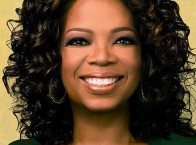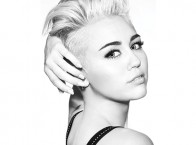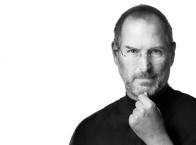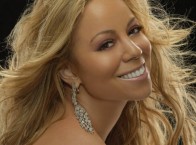Although Mercury's speaking voice naturally fell in the baritone range, he delivered most songs in the tenor range. Learn 50 interesting facts about Mercury.
1. His real was Farookh Bulsara.
2. He was born on September 5, 1946 at Zanzibar, Tanzania.
3. He could played piano, guitar and keyboards.
4. The son of Bomi and Jer Bulsara, Freddie spent the bulk of his childhood in India where he attended St. Peter's boarding school.
5. He began taking piano lessons at the age of seven.
6. The Bulsara family moved to Middlesex in 1964 and from there Freddie joined up with a blues band called Wreckage while studying graphic design courses at Ealing College of Art.
7. While singing for Wreckage, a fellow student introduced Freddie to Roger Taylor and Brian May, founder members of a band called Smile.
8. Smile metamorphosed into Queen when Freddie joined Roger and Brian as the lead vocalist.
9. EMI Records and Elektra Records signed the band and in 1973 their debut album 'Queen' was released and hailed as one of the most exciting developments ever in rock music.
10. The immortal operatically styled single 'Bohemian Rhapsody' was released in 1975 and proceeded to the top of the UK charts for 9 weeks. A song that was nearly never released due to its length and unusual style but which Freddie insisted would be played became the instantly recognisable hit.
11. Very soon Queen's popularity extended beyond the shores of the UK as they charted and triumphed around Europe, Japan and the USA where in 1979 they topped the charts with Freddie's song 'Crazy Little thing Called Love'.
12. Through Freddie's ability to project himself and the band's music and image to the four corners of 70,000 seater venues they became known as the prime developers of stadium rock, a reputation perpetuated by their pioneering tactics in South America where in 1981 they performed to 231,000 fans in Sao Paulo, a world record at the time.
13. They also became known as the key innovators of pop videos as their catalogue of 3-minute clips became more and more adventurous in style, size and content.
14. In the mid 80's, Freddie started concentrating on his solo career, which was to run in tandem with Queen ("the mothership") for several albums commencing with the 1985 release of 'Mr. Bad Guy'.
15. Freddie's much loved sense of self-parody reached a zenith with his cover version of The Platter's song 'The Great Pretender' in 1987, the video of which recorded him descending a sweeping staircase among acres of identical cardboard cutouts of himself.
16. His first major collaboration outside Queen was with Dave Clark for the recording of London's West End musical Time, in 1986.
17. This was followed in 1987 with the realisation of one of Freddie's long-term dreams; to record with the world revered opera diva Montserrat Caballé. The LP's title song, 'Barcelona' went on to become an anthem for Senora Caballé's home city and the theme for the Olympics in 1992.
18. While most publicly recognized as the front man to one of the most progressive rock bands of the 70's, Freddie defied the stereotype.
19. A taste for venturing into new territories - a trait that was to have a marked influence on the direction Queen would take - took Freddie to explore his interests in a wide spectrum of the arts, particularly in the areas of ballet, opera and theatre, even taking a participating role: in October1977 the sell-out audience of a charity gala at the London Coliseum organised by Royal Ballet Principal dance Wayne Eagling received the surprise of an unannounced appearance by a silver-sequinned leotard-clad Freddie performing an intricate routine choreographed for him by Eagling.
20. In 1987 he made a one-night appearance in Dave Clarke's Time at the Dominion Theatre, although legend has it Freddie occasionally turned up at the theatre to support friend Clarke's musical, one night selling ice-creams in the stalls!
21. Freddie returned to the studios to record 'Innuendo' with Queen in 1990.
22. On November 24th, 1991, Freddie's struggle against AIDS ended when he passed away just over 24 hours after he had publicly announced he had the disease.
23. Musicians and fans from all over the world paid their highest respects as the passing of rock's most innovative, flamboyant ambassador signified the end of an era at the Freddie Mercury Tribute Concert at Wembley Stadium on April 20, 1992 which gave birth to the Mercury Phoenix Trust, the AIDS charity set up in Freddie's memory by the remaining members of Queen and Freddie's Executor, Jim Beach.
24. In September 2010 (coincidentally, around Freddie's 64th birthday) a poll carried out among rock fans saw him named the Greatest Rock Legend Of All Time, beating Elvis Presley to claim the title, and ahead of David Bowie, Jon Bon Jovi, Jimi Hendrix and Ozzy Osbourne.
25. September 5, 2010 saw The Mercury Phoenix Trust launch 'Freddie For A Day', a major annual initiative designed to celebrate Freddie's life each year on his birthday and to support the on-going work of the Trust. The project encourages fans to dress as Freddie for a day and in doing so raise funds for MPT through sponsorship.
26. Taking it one stage further, Freddie's 65th birthday, September 5, 2011 was celebrated with a major party in London in aid of The Mercury Phoenix Trust, hosted by Queen's Brian May and Roger Taylor.
27. Although Mercury's speaking voice naturally fell in the baritone range, he delivered most songs in the tenor range. His vocal range extended from bass low F (F2) to soprano high F (F6).
28. Mercury wrote 10 of the 17 songs on Queen's Greatest Hits album: "Bohemian Rhapsody," "Seven Seas of Rhye," "Killer Queen," "Somebody to Love," "Good Old-Fashioned Lover Boy," "We Are the Champions," "Bicycle Race," "Don't Stop Me Now," "Crazy Little Thing Called Love" and "Play the Game".
29. The most notable aspect of his songwriting involved the wide range of genres that he used, which included, among other styles, rockabilly, progressive rock, heavy metal, gospel and disco. As he explained in a 1986 interview, "I hate doing the same thing again and again and again. I like to see what's happening now in music, film and theatre and incorporate all of those things."
30. Compared to many popular songwriters, Mercury also tended to write musically complex material. For example, "Bohemian Rhapsody" is acyclic in structure and comprises dozens of chords.
31. He also wrote six songs from Queen II which deal with multiple key changes and complex material. "Crazy Little Thing Called Love," on the other hand, contains only a few chords.
32. Despite the fact that Mercury often wrote very intricate harmonies, he also claimed that he could barely read music. He wrote most of his songs on the piano and used a wide variety of different key signatures.
33. Mercury was noted for his live performances, which were often delivered to stadium audiences around the world. He displayed a highly theatrical style that often evoked a great deal of participation from the crowd.
34. One of Mercury's most notable performances with Queen took place at Live Aid in 1985, during which the entire stadium audience of 72,000 people clapped, sang and swayed in unison.
35. Queen's performance at the event has since been voted by a group of music executives as the greatest live performance in the history of rock music.
36. Over the course of his career, Mercury performed an estimated 700 concerts in countries around the world with Queen.
37. A notable aspect of Queen concerts was the large scale involved. He once explained, "We're the Cecil B. DeMille of rock and roll, always wanting to do things bigger and better."
38. The band was the first ever to play in South American stadiums, breaking worldwide records for concert attendance in the Morumbi Stadium in São Paulo in 1981.
39. In 1986, Queen also played behind the Iron Curtain when they performed to a crowd of 80,000 in Budapest, in what was one of the biggest rock concerts ever held in Eastern Europe.
40. Mercury's final live performance with Queen took place on 9 August 1986 at Knebworth Park in England and drew an attendance estimated as high as 160,000.
41. Although he cultivated a flamboyant stage personality, Mercury was shy and retiring when not performing, particularly around people he did not know well, and granted very few interviews.
42. Mercury once said of himself: "When I'm performing I'm an extrovert, yet inside I'm a completely different man."
43. In 1987 Mercury celebrated his 41st birthday at the Pikes Hotel, Ibiza, several months after discovering that he had contracted HIV.
44. Mercury sought much comfort at the retreat and was a close friend of the owner, Anthony Pike, who described Mercury as "the most beautiful person I've ever met in my life. So entertaining and generous."
45. The frog genus Mercurana, discovered in 2013 from Kerala, India, was named as a tribute because Mercury's "vibrant music inspires the authors."
46. In addition, the site of discovery is very near to where Mercury spent most of his childhood.
47. Consistently rated as one of the greatest singers in the history of popular music, Mercury was voted second to Mariah Carey in MTV's 22 Greatest Voices in Music.
48. Additionally, in January 2009, Mercury was voted second to Robert Plant in a poll of the greatest voices in rock, on the digital radio station Planet Rock.
49. In a 2010 poll conducted on the BBC Two series I'm in a Rock 'n' Roll Band!, Mercury was named the vocalist in the ultimate fantasy band.
50. In 2013 Gigwise readers named Mercury the best frontman ever.
Source: queenonline.com, Wikipedia.org

 Share on Facebook
Share on Facebook




















